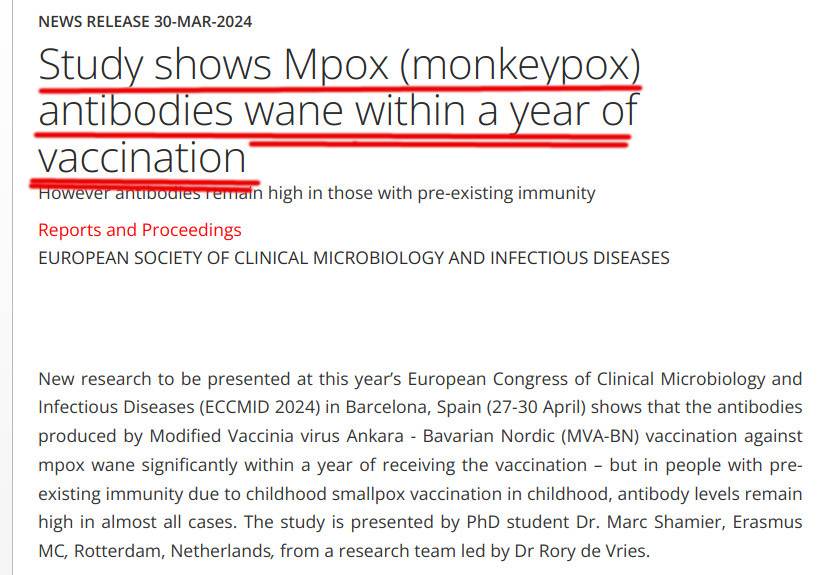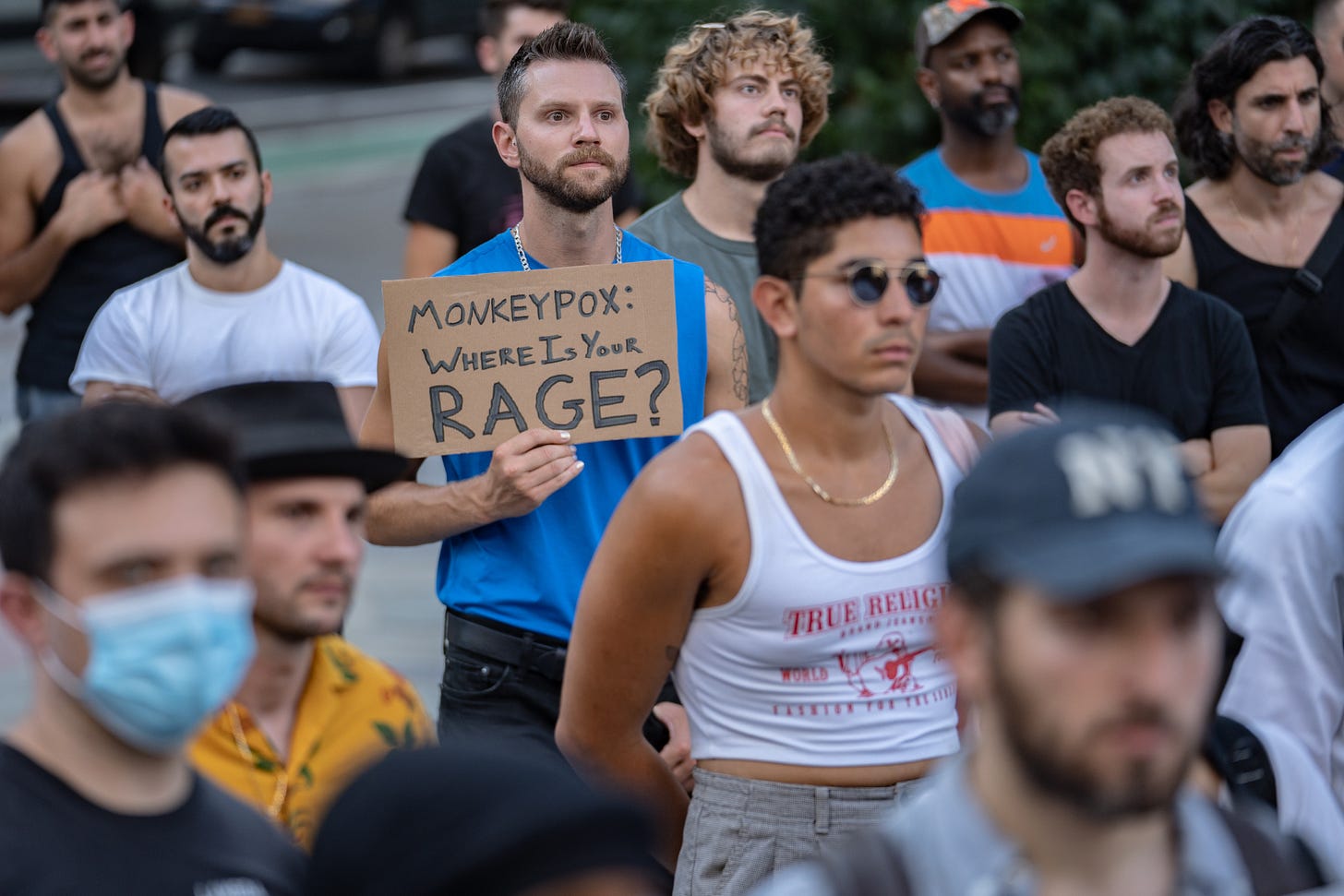Monkeypox Boosters Discussed as Vaccine Antibodies Drop to Zero In Just a Year
A very "unexpected" development!
Monkeypox was recently given a new name, mpox, to avoid racial bias. That’s the name I will use for the rest of this post. Mpox is an orthopoxvirus virus related to smallpox that causes extremely painful lesions and is transmitted via “close contact.” It spreads mostly, but not exclusively, among vulnerable and stigmatized groups of people who come in unprotected contact with large numbers of sexual partners, often involving wild parties combining anonymous sex with chemical stimulants.
In a rush to do something, an untested vaccine, Jynneos, was given to thousands of people. At the time it was given, it was not validated by any randomized clinical trial, and its effectiveness was not known, as I pointed out almost two years ago:
Unfortunately, my obvious concerns about Jynneos's unproven performance have been proven valid. A recent study found that the vaccine-elicited antibodies among most of those who had no smallpox vaccine in childhood (so anyone under 50) wane to undetectable levels after just one year.
Among individuals without pre-existing immunity, 14/21 (67%) had undetectable levels of VACV IgG and a 10.7-fold decrease in VACV IgG GMT (geometric mean, a standard measurement for antibody levels) was observed compared to the last time point after vaccination in 2022 (4 weeks after the second dose) (Figure 1 full abstract).
The outcomes are better among older people who received a smallpox vaccine during childhood. (If you, like me, are smallpox-vaccinated, you would have a characteristic scar on your arm.) However, almost no one under 50 received a smallpox vaccine; two-thirds of those younger people lost all immunity to mpox after just one year past vaccination.
The authors suggest looking into “mpox boosters:”
They add: “Regarding the potential necessity for a booster, it is premature to draw such conclusions. It is unclear how waning antibody levels relate to protection. Immunity also involves other elements, such as T-cell responses. Comprehensive clinical monitoring over time, which connects infection rates with antibody levels, is required to make informed decisions about booster vaccination protocols.”
Immunity waning seems to translate into a real-life rise of mpox among the vulnerable groups:
The “health experts,” of course, blame the unvaccinated, citing low vaccination coverage:
“This has the potential to become a fairly prevalent infectious disease, but the advantage with mpox is, we have a vaccine that’s effective. We don’t have that for syphilis, gonorrhea, chlamydia or HIV,” said Dr. Marcus Plescia, chief medical officer for the Association of State and Territorial Health Officials. “We’ve had fairly good participation in the vaccination push, but we’re not anywhere close to getting most of the at-risk population vaccinated. Until that happens, we’re going to see outbreaks and upticks in cases in various places.”
Worse Mpox Variant Coming?
Mpox has two basic variants: Clade I and Clade II. Clade II is responsible for the 2022 mpox outbreak in the West. The Jynneos vaccine targeted Clade II, which is not lethal despite being highly unpleasant.
However, another subtype of mpox, called Clade I, is seeing increased growth. Unlike the vaccine-targeted Clade II, Clade I has 5-10% mortality and is more transmissible.
So, we may see more surprises as the mpox pandemic morphs into a more virulent subtype, infecting populations with waned Jynneos vaccine immunity who were immunized against the less virulent clade. If that happens, the groups vulnerable to infection might see much worse mortality than they experienced in 2022!
Sounds familiar?








"Monkeypox was recently given a new name, mpox, to avoid racial bias. That’s the name I will use for the rest of this post."
Lol - did the monkey world council file a racism complaint?
Whoever feels racially discriminated by the term "monkeypox" must identify as a monkey. Whoever truly identify as a monkey should live with other monkeys in the wild or even a zoo. What a great attraction that would be.
Igor please, why are you playing their stupid game? It's monkey pox. Not Mpox.
So the term monkey pox is racist. Since when did monkeys become a race? I believe the real reason that they want to change the name is because we memed it to death in the last go around. The name monkey pox just lends itself so well to so many memes and they hate being mocked. So have at it folks and don't let them take even our language.